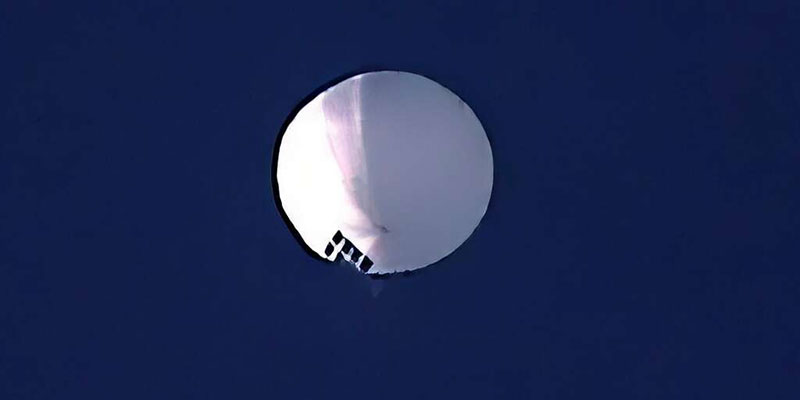
The discovery of a Chinese balloon floating over Montana has created lots more heat than light. Hourly news reports make it sound like a replay of Pearl Harbor.
Fact is, the balloon itself presents zero danger, weapons-wise, and if it were on a serious spying mission, it could be easily neutralized.
“Really, it’s not a big deal,” former Air Force general and CIA director Michael Hayden said, “We can neutralize it so I don’t think it’s a danger either.”
The Pentagon has said as much, too, but its calming message has been pretty much overlooked in the hysterical coverage afforded news of the balloon discovery a few days ago.
“But out of an abundance of caution, we have taken additional mitigation steps. I'm not going to go into what those are. But we know exactly where this balloon is, exactly what it is passing over. And we are taking steps to be extra vigilant so that we can mitigate any foreign intelligence risk,” a Pentagon briefer said Friday.
There is a “variety of capabilities to render it unusable or mitigate the threat,” Paul Cobaugh, a retired Army information operations specialist also said. “It’s not a threat.”
The satellite might well have drifted off its intended path as an aide in an upcoming satellite launch.

“The near-term goal for the High-Altitude Balloon (HAB) is to act as a testbed for ground communications and CubeSat systems prior to launch,” said a 2021 paper from US Army Space and Missile Defense Command Space and High-Altitude Research Center at West Point. “The long-term goal for the HAB is to develop a station-keeping subsystem that will enable HABs to maintain their relative position over a single point on the ground and demonstrate militarily relevant capabilities and concepts.”
Armchair generals in social media sites like LinkedIn have been crying for the Air Force to shoot it down. The Biden administration, citing the potential of civilian casualties from the falling debris, declined to do that.

If it posed any real threat, the Pentagon has a range of decades-old technology to neutralize it, experts say. It could “spoof” Bei Dou, the Chinese satellite navigation system, to guide it to the ground, Brian Barritt, chief technology officer at Aalyria Technologies, said on LinkedIn.
Bottom line: Everybody needs to calm down.
